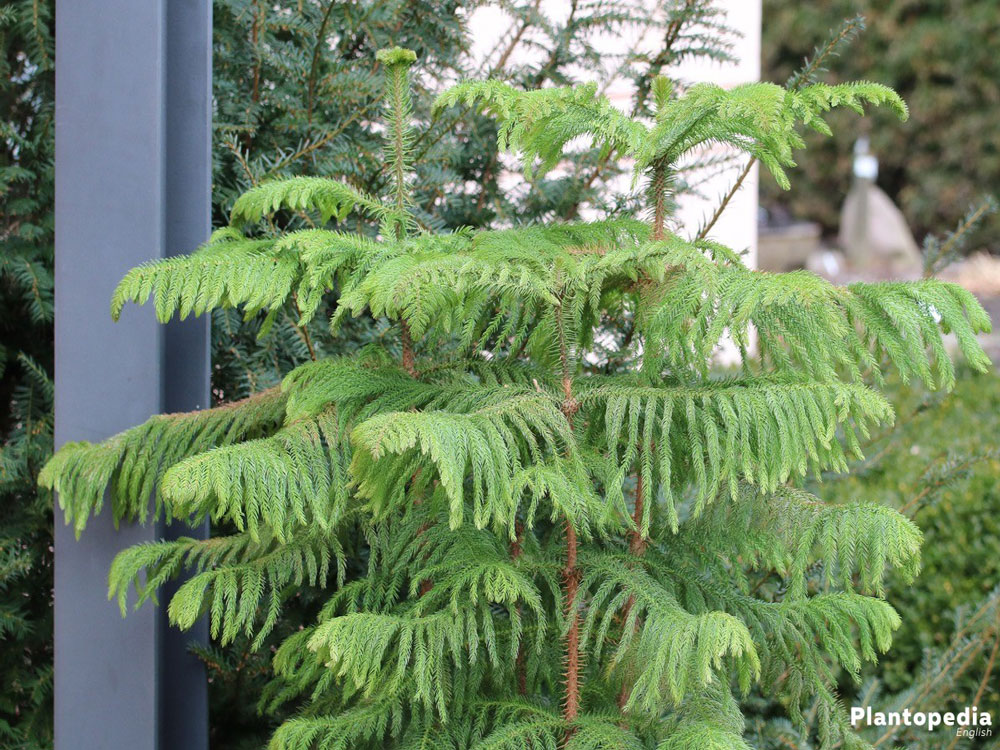Norfolk Island pine - christmas tree

Araucaria heterophylla
Summary
Scientific Classification
Kingdom: Plantae
Division: Gymnosperm
Class: Pinopsida
Order: Pinales
Family: Araucariaceae
Genus: Araucaria
Species: A.heterophylla
Scientific Name: Araucaria heterophylla (Salisb.) Franco.
Common names
English :Norfolk Island pine, star pine, Polynesian pine, triangle tree or living Christmas tree.
Discription
- Habit and Habitat: : This large evergreen has a single upright trunk, tiered branching habit, and a narrow pyramidal or columnar shape . Young trees have an almost symmetrical form for the first 40 years or so. Eventually reaching a height of about 50 to 70m and acquire girth of about 1.25 to 1.75 meters.
- Distribution: : This large evergreen has a single upright trunk, tiered branching habit, and a narrow pyramidal or columnar shape . Young trees have an almost symmetrical form for the first 40 years or so. Eventually reaching a height of about 50 to 70m and acquire girth of about 1.25 to 1.75 meters.
- Morphology:
Leaf: : Foliage dimorphic. Juvenile leaves awl-shaped, incurved, green, needle-like, to 1.2 cm. long. Adult leaves scale-like, 4-5 mm. long, incurved, densely arranged, bright dark green; on fertile branchlets overlapping, broadly ovate, spine-tipped, 6 mm. long by 4-6 mm. wide.
Bark: gray-brown, exfoliating in fine scales.
Cones: Male cone in clusters, elongated, 4 cm. long, yellowish-brown or reddish; microsporophylls acute, margins ciliate, denticulate.
Female cone broader than long, 1215 cm. long, with triangular scales and a long incurved bract. Female cones are produced on trees older than 15 years and male cones on trees older than 40 years.
Seeds: Seeds 2.5-3 cm. long by 1.2 cm. wide, with broad wings. Cotyledons 4, epigeal. - Propagation: Propagation is by seeds or cuttings of erect shoot tips only.
- Importance:
a. The distinctive appearance of this tree, with its widely spaced branches and symmetrical, triangular outline, has made it a popular cultivated species, either as a single tree or in avenues. - Location: Botanical Garden.
 Trees of GSS Project supported by Makerspace Belgaum Website concept and designe by
Trees of GSS Project supported by Makerspace Belgaum Website concept and designe by